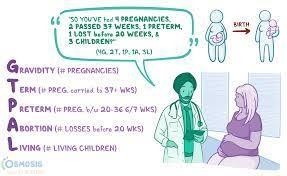A nurse is instructing a woman who is contemplating pregnancy about nutritional needs. To reduce the risk of giving birth to a newborn who has a neural tube defect, which of the following information should the nurse include in the teaching?
Increase your intake of ironrich foods and take a prenatal vitamin.
Avoid any alcohol consumption.
Take a folic acid supplement for at least 3 months before you get pregnant.
Avold all foods containing aspartame
The Correct Answer is C
A. "Increase your intake of ironrich foods and take a prenatal vitamin."
Important, but not directly related to reducing the risk of neural tube defects. Ironrich foods and prenatal vitamins are essential for overall maternal and fetal health, but they do not specifically target neural tube defect prevention.
B. "Avoid any alcohol consumption."
Important advice during pregnancy to prevent fetal alcohol spectrum disorders, but not directly related to reducing the risk of neural tube defects.
C. "Take a folic acid supplement for at least 3 months before you get pregnant."
Correct: Adequate folic acid intake before conception and during early pregnancy can significantly reduce the risk of neural tube defects in newborns.
D. "Avoid all foods containing aspartame."Aspartame is an artificial sweetener that has been studied for safety in pregnancy, and there is currently no strong evidence linking it to neural tube defects. However, it's still a good idea
to limit the intake of artificial sweeteners during pregnancy and focus on a balanced diet.
Nursing Test Bank
Naxlex Comprehensive Predictor Exams
Related Questions
Correct Answer is B
Explanation
Choice A: Bowel prep protocols are not required for an amniocentesis procedure, as it involves sampling amniotic fluid from the uterus, not the bowel.
Choice B: Emptying the bladder before the procedure is important to improve comfort and minimize the risk of accidental puncture during the amniocentesis.
Choice C: It is essential to have a full bladder for some ultrasound procedures, but it is not necessary for an amniocentesis. A full bladder can help push the uterus upward and make it easier to visualize the fetus during the ultrasound, but it is not relevant to the amniocentesis procedure.
Choice D: Washing the abdomen with soap and water is not a required step for an amniocentesis procedure. The procedure involves sterile preparation of the abdomen using an antiseptic
solution.
Correct Answer is C
Explanation
The correct answer is: c. 42022
Choice A: 40122
Reason: This choice is incorrect because it indicates 4 pregnancies (correct), 0 term births (correct), 1 preterm birth (correct), 2 abortions (correct), but 2 living children (incorrect). The client has 2 living children, which is correct, but the term and preterm counts are not accurate.
Choice B: 20020
Reason: This choice is incorrect because it indicates 2 pregnancies (incorrect), 0 term births (correct), 0 preterm births (incorrect), 2 abortions (correct), and 0 living children (incorrect). The client has had 4 pregnancies, 1 preterm birth, and 2 living children.
Choice C: 42022
Reason: This choice is correct. It indicates 4 pregnancies (current pregnancy, elective abortion, twins, spontaneous abortion), 0 term births, 2 preterm births (twins at 36 weeks), 2 abortions (elective at 9 weeks, spontaneous at 15 weeks), and 2 living children (twins).
Choice D:
The GTPAL system is used to assess a client's obstetric history:
- G (Gravida): The total number of pregnancies, including the current one.
- T (Term births): The number of pregnancies carried to at least 37 weeks.
- P (Preterm births): The number of pregnancies delivered between 20 and 36 weeks, 6 days.
- A (Abortions): The number of pregnancies ending before 20 weeks (spontaneous or elective).
- L (Living children): The number of children currently alive.
For this client:
G (Gravida): 4 (one elective abortion, one twin pregnancy, one spontaneous abortion, and the current pregnancy).
- T (Term births): 0 (the twin pregnancy was delivered at 36 weeks, which is preterm).
- P (Preterm births): 1 (twins delivered at 36 weeks count as one preterm birth).
- A (Abortions): 2 (one elective abortion at 9 weeks, one spontaneous abortion at 15 weeks).
- L (Living children): 2 (the twins).
Thus, the GTPAL for this client is 4-0-1-2-2.

Whether you are a student looking to ace your exams or a practicing nurse seeking to enhance your expertise , our nursing education contents will empower you with the confidence and competence to make a difference in the lives of patients and become a respected leader in the healthcare field.
Visit Naxlex, invest in your future and unlock endless possibilities with our unparalleled nursing education contents today
Report Wrong Answer on the Current Question
Do you disagree with the answer? If yes, what is your expected answer? Explain.
Kindly be descriptive with the issue you are facing.
